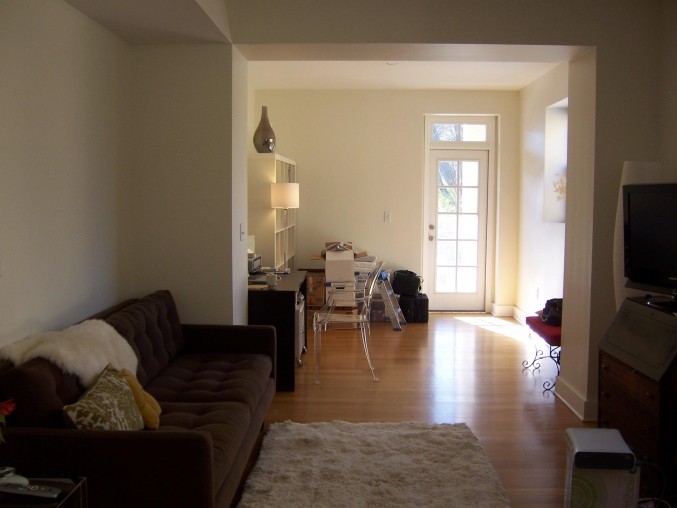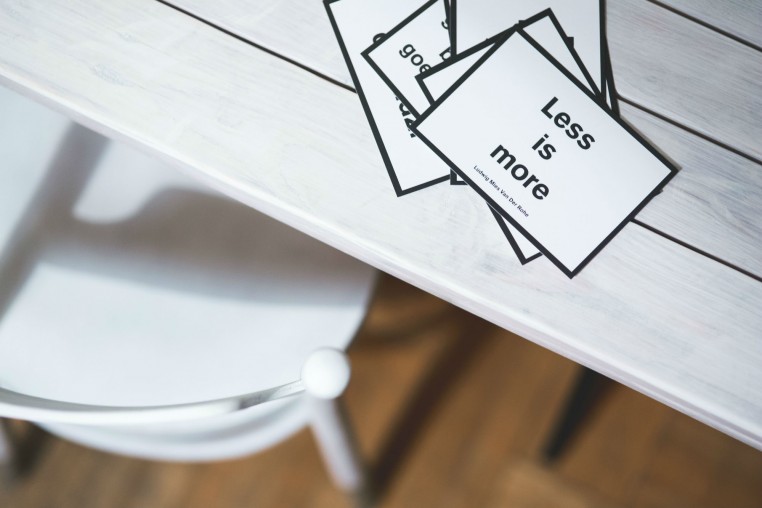What is life? Is it the person suppressed inside every soul that is born to live free or the magnitude of earthly possessions that one collects during their lifetime? Is it the burden of memories that we carry in the forms of materials from the past or the supposed planning of future that forces us to accumulate more and more?
Definitely, life is much more than what is movable and tangible. The essence of it lies in how life is lived and not by how a lifetime is spent on acquiring things. Upon realisation of this, the world citizens are moving towards a lifestyle called Minimalistic life. A life where things of individual’s importance and necessity is kept and rest are done away with. As Mahatma Gandhi, one of the architects of free India, said:
“Live simply so that others may simply live.”
What Minimalism?
Any lifestyle does not come with any manual guide on how to live it correct. Lifestyle is an individual choice, and therefore minimalism is also about one’s own choices and not what someone else has said or done. The crux of this lifestyle is choosing quality over quantity and letting the excess baggage go. However, it does not always mean an empty house, not at all! It rather means keeping what is needed and nothing less or more.
Minimalism can start inside the head and in the heart. Uncluttering thoughts is also a way of minimalism. At a personal level, it does not mean living a gypsy life or a life of a monk. It means surrounding oneself with things that bring joy and nothing less. And the bigger picture says waste of an individual might be an essential for someone else.

Why Go Minimal?
After self discovering what it actually is, the next thing that matters is why? Why people around the globe are talking about it and why should it affect the I in You? There are reasons, but are those reasons suitable for all? Again, if minimalism is a personal choice then the reasons should also be personal.
Fulfilment will only be achieved when reasons come from within. Yet, here are popular perceptions, as to why minimalism should be a way of life.
1. To understand self: Before packing, donating, and discarding one needs to think, why is it important to do so. While doing so, one understands their inner self. If a certain object is not important or useless why is it useless and what actually is useful for him/her? Surely, in between these questions and answers, the mind will declutter itself to help in knowing what a person really needs in terms of objects to be content and happy.
2. To free from the evil of possession: The more one possesses, the more the possessions possess one. Accumulating more and more stuffs leads to the burden of maintenance. One just not brings things but also brings responsibilities that tie down the owner. Responsibilities lead to worries (necessary and unnecessary) and eventually it is a loop that never ends unless unnecessaries are done away with.
3. To value the real gems: Every person has their own gems that mostly go unnoticed as they are overshadowed by other things. There are stuffs small or big that hold the power to make a person smile; it might be there on a coffee table lying under the magazine pile or inside the wardrobe covered with clothes untouched for months. These gems must be identified and housed properly.
4. To value earnings: The mission is to eliminate the unnecessary which will also lead to questioning why a particular purchase is needed. Definitely, this will help one sort out many monetary and debt related issues, and financial turmoil will hurt lesser than expected.
5. To live in present: Life exists only in this moment, the past is already gone and the future is never guaranteed. Life can go smoothly even without a plan and life can get complicated even with a plan. Lesser stuffs, lesser boundations, more of the present and self.

How To Adopt Minimalism:
This minimalistic lifestyle may seem like a bad idea in cultures that relentlessly pursue materialistic gains, but in Western cultures, minimalism has been a way of life for many. Also in Zen philosophy, simple life is widely propagated. So decide first and if one plans to be minimalist, here is how to begin:
1. Think well: This is a lifestyle and not a moment of sudden excitement; it requires a level of commitment that should last, so thinking well is a first requirement to adopt minimalistic lifestyle.
2. Make time: To feel the instant result everything needs to be done in one go. First think, then take out time and then implement what is in the mind. The end result should be fulfilling and not shocking.
3. Understand the requirements: Second opinion is not something that is required to declutter and simplify life which is an individual’s own asset. Doubt should not exist in the mind, either something is in or out, no mid way.
4. What brings meaning and joy: Objects have the power to bring joy or meaning. What each object in a home does to the owner is a personal decision to make and stick to. Let go off what’s bothering, inconvenient, and useless.
5. Categorising things: Homes are called homes because anything and everything can be kept anywhere and everywhere. So, decluttering room after room is not a bright idea but decluterring category after category of things will indeed help.
6. Create dedicated spaces: Adopting minimalism also helps in organizing a home. Create separate dedicated spaces for books, clothes, electronics, kitchen appliances that will further increase space in the house, and assist one in keeping better track of things.
Have A Happy Life:
The end quest of life is happiness. For some nothing is less; for some nothing is enough for joy, peace, and happiness. A road less travelled is an unwanted risk for some and a welcomed adventure for many. A simple, minimalistic life also might do wonder for some and at the same time might bother some. To each his own! Ergo, think, decide, and of course, have a happy life.
